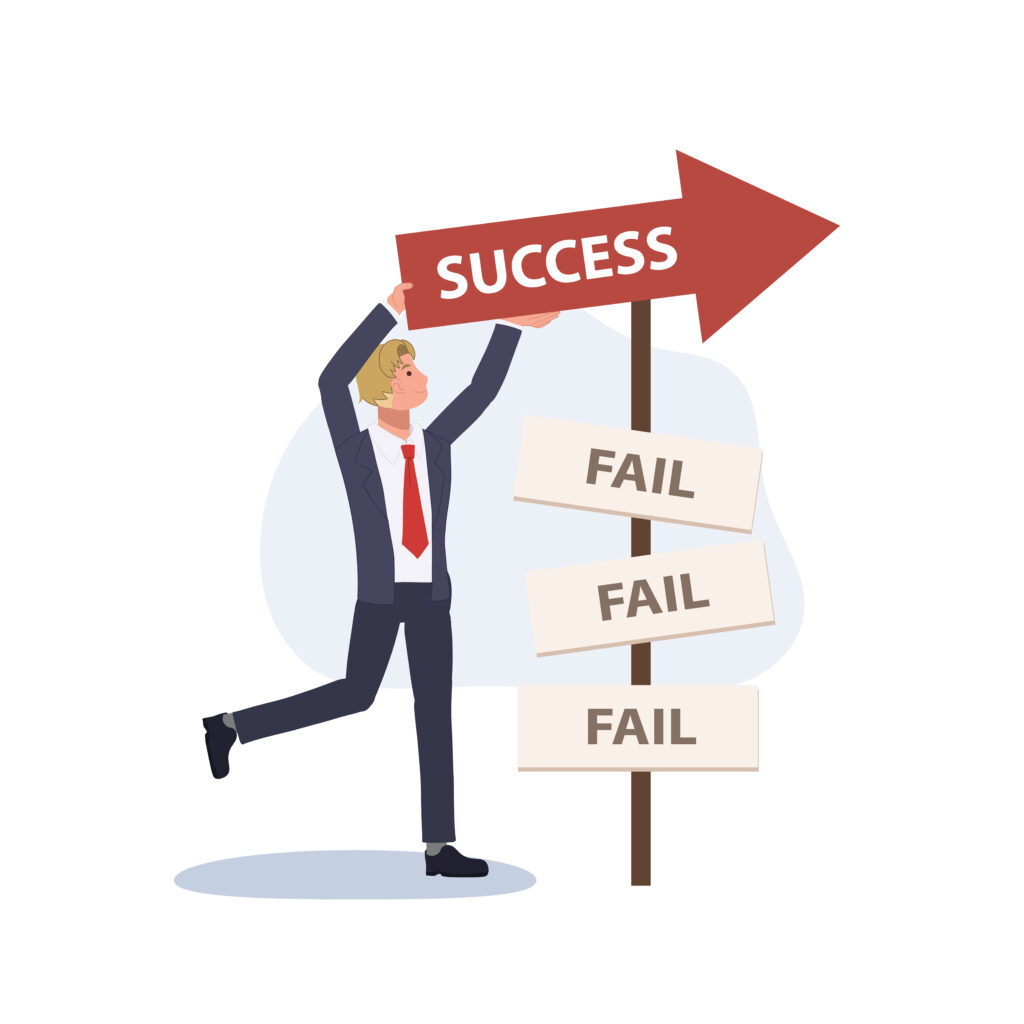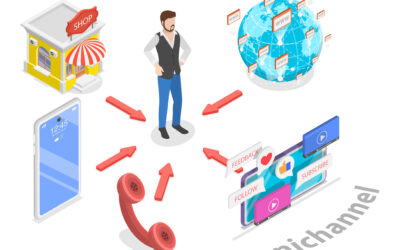“When you fail, you develop a deeper understanding of your job and self. Not only will you not repeat the mistakes you make, but you also begin to ask deeper questions to consider every possible scenario.” – Paul Koulogeorge, Former Forbes Council Member.
Experiencing failure is a key part of the journey toward success in personal and professional life, even unavoidable. Failing teaches us valuable lessons, helping to build resilience, adaptability and determination, traits necessary for achieving our goals. Understanding and learning from our failures allows us to review our mistakes, learn from them, refine our plans and prepare for the next attempt. This article explores how experiencing failure shapes success, illustrating this concept with lessons from top entrepreneurs who have turned their personal setbacks into defining achievements.
Why Must We Fail in Order to Succeed?
Experiencing failure is often the necessary precursor to success. Rather than viewing it as a final destination, we must use it as an opportunity to learn.
The experience of failing allows us to learn valuable lessons that success alone cannot provide. Failures build mental and emotional toughness, forcing us to develop new ideas, skills and strategies.
Is Failure Part of Human Nature? Why?
Failure and learning from mistakes is intrinsic to the human experience. Based on what we learned from our failures, our brains create and maintain new neural pathways — helping us avoid the same mistakes in the future, grow more resilient, and, eventually, find success.
Why is it Important to Learn from Our Mistakes and Failures?
Making mistakes and failing pushes us to rethink our goals, methods and actions. For example, a failed product launch in a business might reveal gaps in market research or customer feedback. In personal growth, failure may show us where to focus on improving our mindset or skillset. Learning from our mistakes prevents us from repeating them and positions us to achieve higher levels of success.
How Can We Best Learn From Our Failures?
1) Acknowledge the Failure
Denying mistakes or brushing them under the rug only hampers our development. Acknowledging failure is the first step toward learning and growing. The act of acknowledgment requires humility and openness to feedback, but this is where real progress begins.
2) Actively Engage in Self-Reflection
Take time to consider why the failure occurred. Was it due to a lack of preparation, a poor strategy, or something outside your control? Self-Reflection enables you to pinpoint the root causes and avoid repeating the same mistakes.
3) Adjust Plans & Methods
After identifying the causes, focus on making changes. Whether improving processes, enhancing communication, or strengthening skills, every failure provides a roadmap for improvement.
4) Persevere With Resilience
Setbacks often discourage people, but perseverance is key. Those who push through their failures with a determined mindset are more likely to succeed in the long run.
5) Seek feedback
Sometimes, the cause of failure isn’t immediately apparent. In these cases, seeking advice and feedback from mentors, peers, or colleagues can offer new perspectives and solutions.

Successful Entrepreneurs Explain the Value and Necessity of Experiencing Failure
The path to success is rarely straight. Many of the world’s most successful entrepreneurs have experienced significant failures before reaching their goals. Here’s what they have to say about the importance of failure:
Elon Musk
“Failure is an option here. If things are not failing you’re not innovating.” – Elon Musk.
Elon Musk is no stranger to failure. From the early struggles of SpaceX to the near collapse of Tesla, Musk has faced setbacks that would have discouraged most. However, he views failure as part of the innovation process. Musk has often stated that failure is not just an option but a necessity in pushing the boundaries of technology and human achievement. According to Musk, each failure offers valuable lessons that drive future success.
Bill Gates
“It’s fine to celebrate success but it is more important to heed the lessons of failure.” – Bill Gates.
Before founding Microsoft, Bill Gates experienced failure when his first business venture, Traf-O-Data, did not succeed. Rather than seeing it as a loss, Gates used the experience to learn and develop his next venture. Gates believes failure sharpens skills, teaches adaptability, and prepares people for the complexities of running a large, successful company. He attributes much of his success to lessons learned from his early failures.
Henry Ford
“Failure is simply the opportunity to begin again, this time more intelligently.” – Henry A. Ford.
Henry Ford faced several business failures before founding the Ford Motor Company. His first two companies failed, but instead of giving up, he took the knowledge he gained from these failures and applied it to his next venture. Ford’s resilience in the face of failure highlights the importance of persistence and adaptability. He famously said, “Failure is simply the opportunity to begin again, this time more intelligently.”
Jeff Bezos
“One area where I think we are especially distinctive is failure. I believe we are the best place in the world to fail (we have plenty of practice!), and failure and invention are inseparable twins. To invent you have to experiment, and if you know in advance that it’s going to work, it’s not an experiment.” Jeff Bezos.
Jeff Bezos, the founder of Amazon, has long embraced failure as part of the company’s culture. Bezos believes that experimentation and the failure that comes with it are essential for innovation. He has frequently mentioned that Amazon’s successes are directly tied to the lessons learned from its many failures. Bezos encourages a mindset where failure is seen not as a setback but as a necessary step in building something truly innovative.
Larry Page
“To do something important, you have to overcome the fear of failure”. – Larry Page.
Google co-founder Larry Page emphasizes the importance of taking risks and accepting failure as part of that process. Page believes that fear of failure limits creativity and innovation. He believes that companies and individuals should not be afraid to take big risks, as even failure can lead to unexpected breakthroughs. Page’s willingness to embrace failure has been key to Google’s ability to remain at the forefront of technological advancements.
Key Takeaways: Learning From Failure
- Failure fuels growth: Each mistake provides insights that can sharpen our skills and strategies for future success.
- Resilience is critical: Bouncing back from failure with determination is vital to achieving long-term goals.
- Failures are learning opportunities: Every setback offers lessons that can help avoid the same mistakes and improve results.
- Successful people embrace failure: Many successful entrepreneurs view failure as necessary for innovation and personal growth.
- Adaptability is essential: Failure encourages us to adapt, learn, and apply new methods for future success.
“I’ve missed more than 9,000 shots in my career. I’ve lost almost 300 games. Twenty-six times I’ve been trusted to take the game winning shot and missed. I’ve failed over and over and over again in my life. And that is why I succeed.” – Michael Jordan.
Final Comments
Failure is a stepping stone to success. Whether in business, personal goals, or any other area of life, the ability to learn from mistakes and bounce back stronger separates those who succeed from those who stagnate. Every failure offers a unique chance to reflect, adapt, and move forward with greater wisdom and resilience.
Remember, failure is not the opposite of success—it’s a crucial part of it.
Thank you for reading our article!
TimeWellScheduled is a secure online time and attendance software 100% tailored to meet your scheduling needs! In Addition, our cloud-based scheduling solution optimizes employee attendance tracking, simplifies payroll administration, and enhances staff management capabilities. Plus, our service is free for up to 10 employees!
Click here to download our (Excel) employee scheduling template; It’s free!





